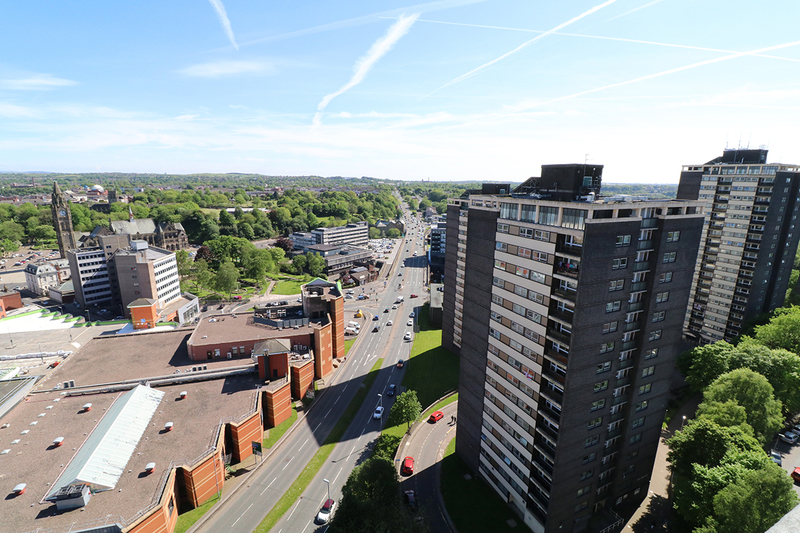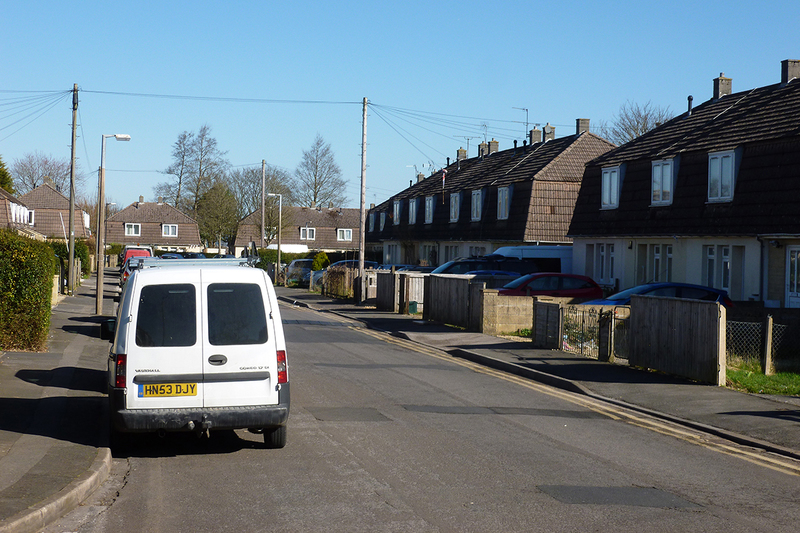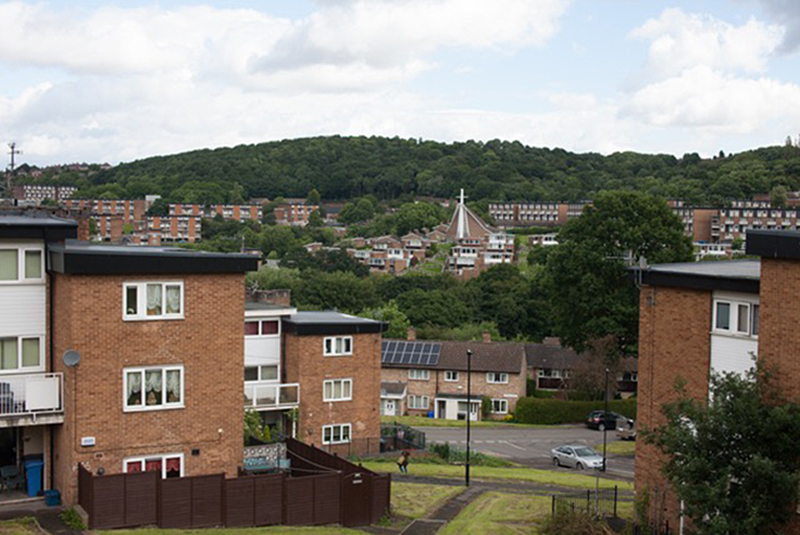You are viewing 1 of your 1 free articles
Altered estates: what next for regeneration?
The estate regeneration plans laid out by David Cameron 18 months ago received a mixed reception. Alex Turner finds out what happened next
It feels an age – although it is only 18 months – since David Cameron revealed controversial plans to regenerate about 100 of what he called some of the UK’s “worst estates”.
Under the plans, government cash would be provided to kick-start regeneration schemes, Mr Cameron said, with private finance expected to drive large-scale redevelopment. As the then-prime minister confessed at the time, for many homes that would mean demolition.
Loans worth £140m were up for grabs. A further £32m in grants was subsequently made available to assist with resident consultation and other elements, such as recruitment, to get the various projects going.
Recipients of the £32m were announced in the spring. Around the country, 105 estates were allocated sums ranging from the low tens of thousands up to nearly £2.5m (to Haringey Council, for a brace of schemes).
So where and how is this money being spent? How far along are regeneration plans? And with social housing an ever-more prized asset, what do residents think about their homes being put on the critical list? Inside Housing visits four very different locations to find out.
Lower Falinge and College Bank, Rochdale
In central Rochdale, the neighbouring Lower Falinge and College Bank estates are among the Greater Manchester borough’s most well-known buildings.
College Bank’s seven high-rises define its skyline – councillor Sultan Ali calls them an “iconic feature”. Nearby Lower Falinge’s deck-access blocks, however, have drawn plenty of negative attention from the press, with The Daily Telegraph infamously branding the estate “Britain’s worst welfare ghetto” in 2010.
The twin estates are getting £553,000 of regeneration money. Rochdale Boroughwide Housing, the 13,500-home tenant and employee-owned mutual in charge of them, produced three options for each estate. On 24 June, it held a residents’ workshop proposing the most radical options go ahead, which would see four College Bank towers and many Lower Falinge blocks come down.
RBH argues the estates have sustainability issues around low demand, high turnover and hefty maintenance bills. A major revamp could help them become “part of Greater Manchester’s success story”, according to Clare Tostevin, RBH’s director of communities. She says the level of empty homes in both estates is higher than the local average.
“We need to balance what’s viable, and we want to look at options for increasing investment,” she says. “The other part is linking to the town centre – it is about creating a better place to live and widening opportunities.”
Initially, RBH’s cash will be spent on more detailed consultation. “We’ve commissioned some high-level masterplanning – work on financial viability; how road layouts create barriers from the town centre,” says Ms Tostevin. “We’re looking at specific work, for instance with young people, ensuring community engagement is right.”
How much new housing follows is unclear – though plans suggest up to 120 new homes at College Bank. Ms Tostevin says the aspiration is for more family homes, with affordable rent – in Rochdale, not much higher than social – forming a significant portion.
Resident opinion is divided. A campaign to ‘save the Seven Sisters’ is underway at College Bank, while people on Lower Falinge appear to favour demolition – but want guarantees they can stay local.
“This estate keeps itself to itself, with lots of people who have lived here 20 or 30 years,” says Andy Roche, former secretary of the Lower Falinge residents’ association. “I want to stay and for RBH to say, ‘don’t worry, you can’.”
Foxhill, Bath
A sharp climb behind Bath Spa station leads, via lanes of eye-wateringly expensive Georgiana, to Foxhill.
There sits a former Ministry of Defence base, being redeveloped – as Mulberry Park – by 12,000-home Curo. Over the road is Curo’s leafy Foxhill estate, a collection of ‘Cornish Unit’ houses with precast concrete walls and distinctive tiled upper storeys, beside more traditional flats, houses and maisonettes, transferred from Bath and North East Somerset Council in 1999.
As part of the Mulberry Park project, Curo wants to replace “up to” 542 homes on Foxhill with 700 new ones – including 158 for social rent and 52
for shared ownership. It has bagged £650,000 of grant for the estate, which it says is energy inefficient, expensive to maintain, socially isolated and with pockets of high turnover.
Last December, the council’s planning services team branded Curo’s outline plans “unacceptable in current form”, with concerns raised over design. The team also questioned whether the target of 420 new affordable units across Foxhill and adjacent Mulberry Park was sufficient, given the loss of 400 social rented homes on the existing estate. While the tenure mix has now been approved – unchanged – in principle by the authority, at the time of writing, well over 200 objections to Curo’s revised plans have been lodged.
As negotiations continue, owner-occupiers – who occupy about 20% of homes within the Foxhill regeneration area – have also been leading a campaign to save the estate.
Many tenants say they are happy where they are, with some claiming Curo’s original consultation documents – which mention new homes but not knocking down old ones – were designed to smooth the way for redevelopment. A 2016 petition against demolition attracted 338 signatures.
Mike Grist, regeneration director at Curo, insists other tenants – those who have been offered like-for-like rents on new homes at Mulberry Park – are excited to be moving.
“There are new houses for tenants to move to, and we will make profits that can pay for regeneration,” he says. “We may not get this opportunity again – we want to seize the moment.”
Cambridge Road, Kingston upon Thames
The 800-home Cambridge Road Estate is the largest in the south-west London borough of Kingston, where land values are sky-high.
Kingston Council announced plans to redevelop the estate – once a location for ITV police drama The Bill – in 2015. It was awarded £46m, under then-mayor Boris Johnson’s Housing Zones initiative, to advance them.
Council leader Kevin Davis tells Inside Housing that while there has been decent homes investment on the estate, the authority ran out of money when it came to environmental improvements. It set out three regeneration options last year, all involving widespread clearance. Only Cambridge Road’s four tower blocks may survive.
Infill and refurbishment, according to Mr Davis, was “never viable” so “wasn’t worth consulting on”. He says the target is 2,100 to 2,200 homes of all tenures on the redeveloped site, with “about 50% social rent” – although he admits tenants could pay “£10, £20, £30 a week more than currently”.
Kingston’s £660,000 grant will be spent on getting a joint venture partner on board and beginning masterplanning. “There was an option of masterplanning first, then going to market – but [after speaking to other boroughs] this seems a waste of money,” says Mr Davis. “A partner may have different views and create opportunities we haven’t considered.”
Harry Hall of Cambridge Road residents’ association would prefer to “slow things down”. Mr Hall says his organisation has been studying other contentious regeneration projects – such as Southwark’s Heygate Estate – and is conducting its own consultation to ensure tenants’ rights, especially around dispersal, are protected.
The residents’ association has engaged a lawyer to challenge the council’s draft decant policy. A revised version of that policy was delayed because of the general election; once the decant issue is settled, says Mr Davis, the authority will go to market.
Gleadless Valley, Sheffield
Gleadless Valley was one of Sheffield’s showpiece post-War estates. Loved by architecture critics, it spills across steep slopes, interspersed by green spaces and woodlands.
But the Valley has fallen on hard times, with welfare reform helping to make some homes – such as larger flats and maisonettes – trickier to let. Last year, The Star in Sheffield revealed that 13 homes on the estate had stood vacant for a total of 2,438 days. It has been allotted £515,000, targeted at developing plans to “improve the quality of the estate, improve public spaces and encourage regeneration of the whole area”, according to Sheffield Council.
Janet Sharpe, the council’s director of housing, cites the city’s history of “success” at attracting government funding – during the 1990s and 2000s, regeneration cash helped it tear down more than 10,000 council homes. Even so, Ms Sharpe says the authority “would probably rule out” major clearance.
“There will be a need for some new build but we are at an early planning stage,” she adds. “Mostly the estate works well – we want to work with the community and ensure we have the right mix of accommodation.”
Ms Sharpe says proposals will look “beyond housing”, at how to reuse some buildings and attract businesses and jobs to the estate, some corners of which are poorly connected to the rest of the city.
Sally Dale, chair of Gleadless Valley Tenant and Resident Association, would like to see new homes for older people, as well as work to improve the appeal of existing properties and provide some environmental upgrades. Demolition will take place “over my dead body”, she adds.
“The council must be seen to attend public meetings and listen,” Ms Dale says. “Ask people if they want to be part of a focus group; then they can liaise with us and feed back what people are saying.
“If the council makes an effort, no one can complain.”















